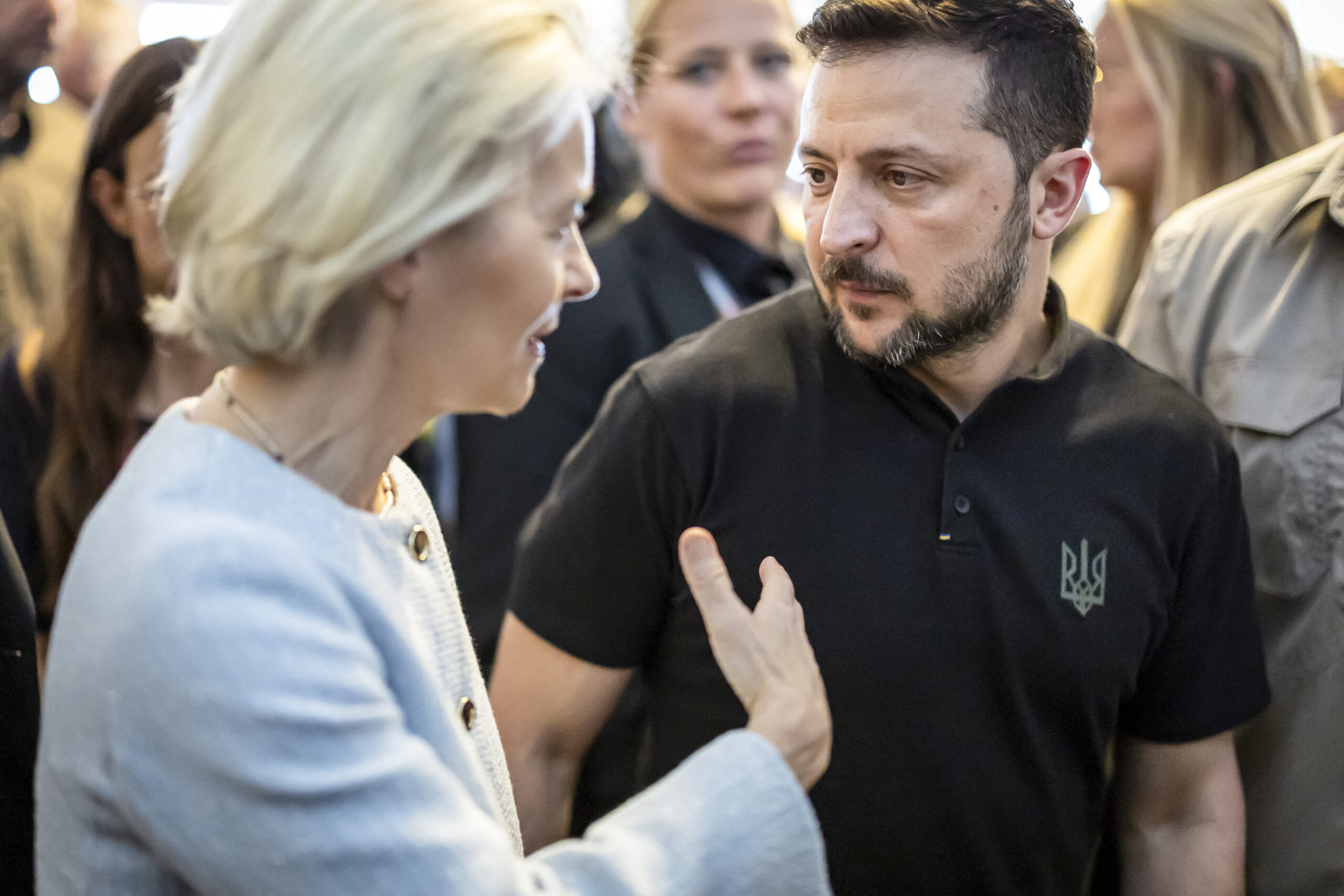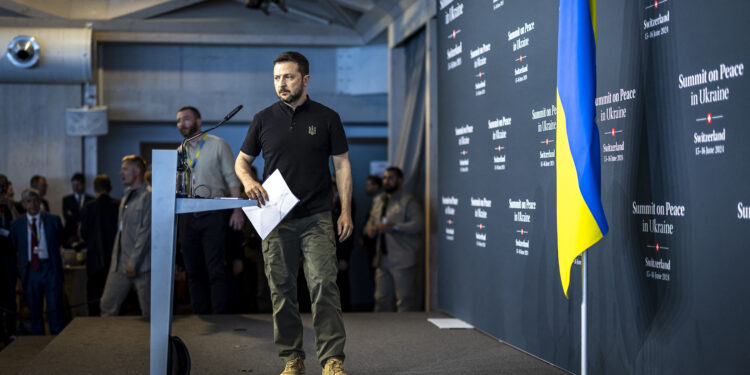Brussels – More than a peace conference, an attempt to test the resilience of the international community’s support for Ukraine. In the end, the summit in Switzerland closes with a joint declaration, signed by 80 of the 92 countries present -including the 27 EU countries – that reaffirms the territorial integrity of Ukraine and stresses that “dialogue between all parties is necessary to end” the conflict. “A success,” although “only a first step,” is the assessment of Volodymyr Zelensky, promoter of the Lucerne event.
The Swiss government invited 160 countries to Lucerne, excluding Russia, while China was among the 68 countries that declined. Armenia, Brazil, Colombia, the Vatican, India, Indonesia, Libya, Mexico, Saudi Arabia, South Africa, Thailand, and the United Arab Emirates did not sign the final communiqué. Countries in that gray zone of equidistance from the parties to the conflict, but mostly countries, the Vatican excluded, that historically have strong political and economic relations with Moscow. Riyad is a different story: it should host the next Ukraine peace summit and – hoping for at least Beijing’s participation – preferred to show itself as a credible mediator and did not endorse the harsh stance of Zelensky’s allies.

In addition to the 92 governments, the European Commission, the European Parliament, and the European Council are also on the list of signatories. The outgoing President of the EU executive, Ursula von der Leyen, declared at a press conference that Vladimir Putin’s peace proposal “is not serious” and that no country “would ever accept these outrageous terms” put on the table by the Kremlin. On the failure to invite Moscow, the EU leader continued: “When Russia says it is ready for peace, based on the UN Charter, then the time will come for Russia to be part of our efforts.” Von der Leyen and the heads of state and government of the G7 countries arrived in Lucerne fresh from the agreement reached at the Borgo Egnazia summit for a $50 billion loan to Ukraine, backed by returns from frozen Russian assets.
Reaffirming the principles of “territorial integrity and sovereignty of all states” as the basis for achieving a “comprehensive, just, and lasting” peace in Ukraine, the final communiqué identifies three areas of common interest on which to work to end the devastating consequences of Russian aggression. The first is nuclear safety: on the one hand, “any use of nuclear energy and nuclear facilities must be safe, secure, protected, and environmentally sound, and on the other hand, “any threat or use of nuclear weapons in the context of the ongoing war against Ukraine is inadmissible,” the document states.
The 80 signatories denounce “the militarization of food security,” which is threatening the countries of the global South in particular, and finally urge the exchange of prisoners of war and the return of Ukrainian children deported by Russia. Zelensky said he is ready to “start negotiations even tomorrow” if Russia “withdraws from our territory.” Meanwhile, the goal is to work at the next summit “to end this war, for a just and lasting peace.” Half of the governments invited to Lucerne – 80 out of 160 – stand with Zelensky, who called for support from countries with strong political influence vis-à-vis Moscow and “should help us.” China, which hopefully will also not snub the upcoming peace summit.
English version by the Translation Service of Withub

![[foto: Emanuele Bonini]](https://www.eunews.it/wp-content/uploads/2024/06/WhatsApp-Image-2024-06-10-at-15.22.24-350x250.jpeg)





![Il commissario per l'Economia, Valdis Dombrovskis, in conferenza stampa a Strasburgo [12 febbraio 2025]](https://www.eunews.it/wp-content/uploads/2025/02/dombro-250212-120x86.png)
